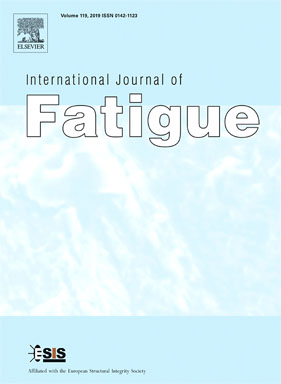Topics discussed in the International Journal of Fatigue:
- New methods of fatigue tests and characterization (new types of fatigue tests, critical assessment of existing methods, measurement of fatigue degradation in situ, non-contact field measurements)
- Multiaxial fatigue and complex effects of loading materials and structures, the study of modern concepts of degradation under cyclic loading
- Fatigue in a very high cycle mode, including transitions of failure mode from surface to subsurface, surface coating effects, processing, and loading conditions
- Simulation (including processes of degradation, and, associated with driving forces, multi-scale / multi-resolution methods, computational hierarchical and parallel methods in combination of components and materials answers, new methods of root mining analysis, fracture mechanics, damage to mechanics, crack growth kinetics, life, predictions and durability, as well as prediction of stochastic behavior fatigue, reflecting the microstructure and operating conditions)
- Models for the early stages of the formation and growth of fatigue cracks, which explicitly take into account the microstructure and the corresponding aspects of materials science
- Understanding the effect or route of production and processing on fatigue degradation and incorporating this understanding into more prognostic schemes for mitigating and designing against fatigue
- Forecasting and reporting on the state of damage (including sensors, monitoring, methodology, interactive control, accelerated methods, data interpretation)
- The use of fatigue-related technologies and their effect on structural integrity and reliability. This includes issues related to design, operation and maintenance, i.e. life cycle design
- Smart materials and structures capable of perceiving and mitigating fatigue degradation
- Fatigue of devices and structures on a small scale, including effects of the process route and surfaces / interfaces
ISSN: 0142-1123



